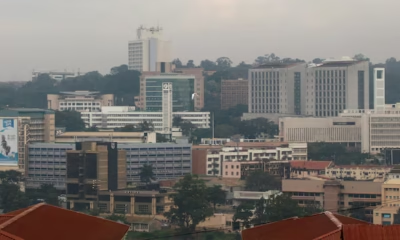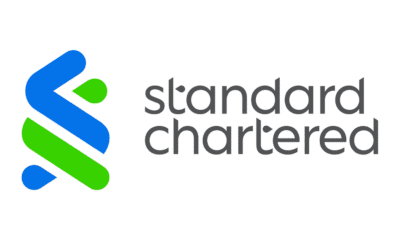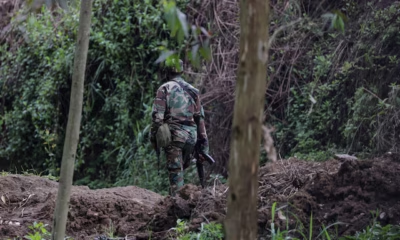Public Finance & Economic Development
Rwanda Economic Growth Slows to 7.8% in Q2 2025 Amid Industrial and Services Sector Challenges
The government has pledged up to $1 billion in new energy investments, including tapping methane gas from Lake Kivu. These initiatives aim to power industrial expansion and attract foreign investment. Analysts say this could be a game-changer for Rwanda’s long-term resilience.

Rwanda’s economic growth slowed to 7.8% in Q2 2025. Explore sector performance, energy investments, trade, and government policy measures.
Rwanda’s Economic Growth Slows in Q2 2025: Full Analysis
Rwanda’s economy grew by 7.8% in the second quarter of 2025, down from 10.2% in Q2 2024, highlighting a notable slowdown in one of East Africa’s fastest-growing markets. Analysts point to weaker performance in the industrial and services sectors, alongside global economic headwinds, as primary contributors to the deceleration.
This trend has captured international attention, with investors closely monitoring Rwanda’s fiscal and structural responses to maintain its growth momentum and regional competitiveness.
This May, the country’s finance minister Yusuf Murangwa unvieled an ambitious budget proposal of increasing spending despite slower 2025 growth.
Industrial and Services Sector Challenges
The industrial sector recorded a 7% growth in Q2 2025, down from 13% a year earlier, affected by reduced domestic demand and supply chain disruptions. Meanwhile, the services sector expanded by 9%, a decline from 12% in Q2 2024, reflecting slower performance in tourism, retail, and transportation services.
Economists suggest that these declines reflect broader regional trends, including rising global interest rates, fluctuating commodity prices, and uncertainties in foreign investment flows.
Agriculture Shows Resilience Amidst Economic Challenges
In contrast to industry and services, agriculture demonstrated resilience, growing by 8% in Q2 2025 compared to 4% in the same period last year. Export crops, particularly coffee, benefited from favorable global market prices and ongoing efforts in replantation and rejuvenation programs. Staple crops such as maize and beans also maintained steady growth, ensuring rural income stability and food security.
Government initiatives, including technical support for farmers and improved irrigation schemes, have contributed to this resilience, demonstrating agriculture’s critical role in Rwanda’s economic foundation.
Energy Investments: Powering Sustainable Growth
Recognizing the importance of energy for industrialization, the Rwandan government announced plans to invest approximately $1 billion in energy projects, aimed at increasing electricity generation and expanding access across the country.
Projects include methane gas extraction from Lake Kivu and solar energy initiatives, diversifying Rwanda’s energy mix while reducing dependency on hydropower and imported fossil fuels. These measures are expected to boost industrial output, attract foreign investment, and strengthen the economy’s resilience to external shocks.
Trade Dynamics: Narrowing Deficit Amid Global Challenges
Rwanda’s trade deficit narrowed by 12.5% in Q2 2025, reflecting improved export performance and more disciplined import growth. Total trade volume reached approximately $1.7 billion, with imports at $1.247 billion and exports at $346 million.
Key export commodities—coffee, tea, and minerals—saw stable or rising international demand, while imports of capital goods and intermediate products were managed carefully. Experts warn, however, that global market volatility, especially in energy and agricultural prices, could affect future trade balances.
Government Policy Measures
In response to the slowdown, the government has introduced policy measures to stimulate growth, including adjusting electricity tariffs every three to four months to reflect production costs without pushing up living costs.
Other measures include fostering a more attractive business environment, incentivizing private sector investments, and strengthening regional trade partnerships, particularly within the East African Community. These steps aim to safeguard economic stability while encouraging sustainable long-term growth.
Digital Economy and Innovation
Rwanda has also prioritized technology and innovation as drivers of growth. Investments in digital infrastructure, fintech solutions, and e-governance platforms are reshaping the business environment, enhancing efficiency in both public and private sectors, and creating new revenue streams for the economy.
Startups focusing on agritech, logistics, and renewable energy are receiving government support, contributing to Rwanda’s emerging reputation as a regional innovation hub.
Outlook: Navigating Economic Headwinds
Despite the slowdown, Rwanda’s strategic investments in energy, agriculture, trade diversification, and technology position the country for sustained resilience. By leveraging these sectors, implementing targeted policies, and fostering regional and international partnerships, Rwanda aims to maintain its growth trajectory while navigating global economic uncertainties.
Related Insights:
Public Finance & Economic Development
Uganda Sells $96m in Treasury Bills at 2025 Auction
The Bank of Uganda is tapping short-term securities to bridge its budget deficit. With yields rising, Treasury Bills are drawing local banks, pension funds, and foreign investors. Economists warn, however, that heavy domestic borrowing could crowd out private sector credit.

The Bank of Uganda is auctioning Shs355bn ($96m) in Treasury Bills on Sept 24, 2025, to finance projects, attract investors, and strengthen the economy.
Kampala, Uganda — The Bank of Uganda (BoU) has launched a fresh auction of Shs355 billion ($96 million) in Treasury Bills, offering investors a safe and profitable option while helping finance the country’s development plans. The sale takes place on September 24, 2025, and comes as the government navigates tighter global financing conditions.
The central bank announced that the auction will feature three maturities. These include 91-day bills worth Shs25 billion ($6.8 million), 182-day bills at Shs75 billion ($20.3 million), and 364-day bills totaling Shs255 billion ($68.9 million). The securities are available to both domestic and foreign investors.
“The auction provides a stable investment avenue and supports the country’s broader economic agenda,” the Uganda Broadcasting Corporation reported, quoting BoU officials.
Why the Auction Matters
Uganda faces a budget deficit as spending outpaces revenue. For the fiscal year 2025/26, the government projects Shs31.9 trillion ($8.6 billion) in revenue against expenditures of Shs51.53 trillion ($13.9 billion). Treasury Bills, alongside longer-dated bonds, have become a key tool to bridge the financing gap. In June this year, the government raised $88 million in a rare private placement treasury bond auction.
The BoU has leaned on short-term paper to meet immediate cash needs while ensuring investor confidence. The approach also helps to manage liquidity and keep inflation under control.
According to Kikubo Lane, yields on government securities have recently climbed, reflecting both global pressures and local demand for higher returns.
Investor Appetite and Global Context
Ugandan government paper continues to attract significant interest. Demand has been supported by domestic pension funds, commercial banks, and insurance firms. Foreign portfolio investors have also increased their participation, seeking exposure to frontier African markets with strong growth potential.
Global conditions play a major role. The U.S. Federal Reserve has kept interest rates high, making global financing more expensive. Meanwhile, regional peers such as Kenya and Tanzania face fiscal challenges of their own. As a result, Uganda’s Treasury Bills offer relatively attractive yields for cautious investors.
The IMF has warned that frontier markets like Uganda must carefully manage debt sustainability. With external debt already estimated at $24.5 billion in mid-2025, the balance between borrowing and stability is delicate.
Debt Sustainability in Focus
Uganda’s domestic debt stock has risen as the government turns inward for financing. By issuing more Treasury Bills and bonds, it reduces reliance on costly external loans. This strategy lowers exposure to currency volatility and international credit risks.
However, it also raises the risk of “crowding out” private sector borrowing. Commercial banks often prefer risk-free government securities over lending to businesses. Economists warn that over time, this could dampen credit growth for small and medium-sized enterprises.
Still, the BoU insists that short-term securities remain vital for balancing fiscal needs with monetary stability. In an interview with SoftPower, analysts said the central bank’s discipline has helped maintain investor confidence despite global volatility.
Next Steps for Investors
Investors interested in today’s auction can participate through the Central Securities Depository System operated by BoU. Settlement is typically on a T+1 basis, meaning payment and allocation occur one day after the auction.
Successful bidders will earn interest based on the discount rate offered. The securities are backed by the government, making them among the safest investments available in the local market.
Market participants expect yields to remain elevated, given inflationary pressures and rising domestic borrowing needs. This may provide attractive returns for both institutional and retail investors.
Broader Economic Implications
The auction is more than just a fundraising exercise. It signals Uganda’s determination to sustain growth, manage inflation, and maintain macroeconomic stability.
According to Nile Post, investor interest in government securities has steadily grown in recent years. This has been aided by regulatory reforms and efforts to deepen Uganda’s capital markets.
For the government, the challenge remains balancing short-term borrowing with long-term debt sustainability. With infrastructure and social spending priorities expanding, Treasury Bills will continue to play a central role in bridging funding gaps.
Outlook
Uganda’s latest Treasury Bill auction underlines the delicate balance between funding needs and financial stability. As global markets remain volatile, BoU’s ability to attract investors at favorable rates will be closely watched.
Economists argue that consistent transparency and prudent fiscal management will be key. If managed well, these auctions could strengthen the country’s financial credibility and attract further international investment.
Public Finance & Economic Development
Rwanda Tightens Foreign Currency Rules: What Businesses Need to Know
The six-month transition period gives businesses time to comply with the new directive. Companies must either amend existing contracts or seek BNR authorization. The move aims to strengthen the Rwandan Franc and curb unauthorized forex activity.

Rwanda’s National Bank introduces stricter rules for foreign currency transactions. Learn which entities can legally transact, how to comply, and the six-month transition period.
Rwanda Tightens Foreign Currency Rules for Businesses
Kigali, Rwanda — September 24, 2025 — Rwanda is intensifying its efforts to regulate foreign currency transactions. The National Bank of Rwanda (BNR) issued a new directive on September 17, 2025, clarifying which businesses can legally transact in foreign currency and outlining the procedures for others to obtain authorization.
“The directive enhances transparency and safeguards the stability of the Rwandan Franc,” a BNR spokesperson stated.
This move, which aims to curb dollarisation and strengthen the national currency, comes hot on the heels of the authorities here banning foreign currency pricing without formal approval.
Who Can Transact in Foreign Currency?
The directive categorizes businesses into two groups:
- Deemed Authorized Dealers — These include real estate firms with valid investment certificates, tourism operators licensed by the Rwanda Development Board (RDB), and companies operating under the Kigali International Financial Centre (KIFC). They do not need further approval to transact in foreign currencies.
- Non-Authorized Entities — Businesses outside these categories must apply to BNR. The central bank has up to 25 working days to respond, extendable by 10 days. (Ensafrica)
How Non-Authorized Businesses Can Apply
To gain approval, non-authorized entities must submit:
- A board resolution authorizing the application.
- A business incorporation certificate.
- A description of the business model and the need for foreign currency transactions.
- Proof of dealings with non-residents or other qualifying factors.
Approval is valid until revoked by BNR. (Lexology)
Record-Keeping Rules
Authorized businesses must keep records of all foreign currency transactions for 10 years. This ensures accountability and helps BNR monitor compliance. Violations may lead to fines or revocation of authorization. (Ensafrica)
Transition Period
Businesses with existing contracts in foreign currency have six months to comply. They can either apply for authorization or adjust contracts to meet the new requirements. (AllAfrica)
Why This Matters
The directive is expected to:
- Strengthen the Rwandan Franc: Reducing dependence on foreign currencies boosts the national currency.
- Enhance economic stability: Limiting unauthorized transactions reduces financial volatility.
- Promote accountability: Record-keeping ensures businesses operate transparently.
Economists say the rules may also discourage informal forex trade and attract investors seeking a stable financial environment.
Next Steps for Businesses
Companies operating in Rwanda should assess compliance and act quickly. Non-compliant businesses risk penalties or losing the right to transact in foreign currencies. BNR encourages firms to review their status and submit applications promptly.
For official guidance, visit the National Bank of Rwanda.
Related Reading
- BNR Clarifies Who Can Legally Use Foreign Currency
- Understanding Rwanda’s FX Regulations 2025
- Implications of Rwanda’s Currency Restrictions
Public Finance & Economic Development
Kenya Pipeline IPO to Raise $1.15B in Landmark Privatization
The Kenya Pipeline IPO marks the first state-owned enterprise listing in over a decade. Proceeds will help the government cut debt and ease reliance on borrowing. Investors see it as a rare chance to buy into strategic infrastructure powering Kenya and its neighbors.

Kenya plans a $1.15B IPO of Kenya Pipeline Co., its largest listing since Safaricom. The IMF-backed sale aims to cut debt and boost the Nairobi bourse.
Kenya’s $1.15 Billion Pipeline IPO Set to Eclipse Safaricom’s Landmark Listing
NAIROBI — Kenya is preparing its biggest-ever initial public offering (IPO), with plans to raise as much as $1.15 billion by selling shares in Kenya Pipeline Company (KPC). The move, announced this week, would mark the first time in more than a decade that the government is offering shares in a state-owned enterprise — and the deal could eclipse the historic 2008 listing of Safaricom Plc, still considered Kenya’s most successful privatization.
The proposed sale of up to 65% of KPC comes as the government intensifies efforts to cut reliance on borrowing and meet reform commitments made to the International Monetary Fund. Lawmakers are expected to vote on the IPO proposal on Tuesday, paving the way for what could become a transformative moment for Nairobi’s capital markets.
IMF-Backed Fiscal Strategy
The IPO is part of broader fiscal reforms agreed between Kenya and the IMF under a multi-billion-dollar support program. The IMF has urged Nairobi to diversify revenue sources and reduce dependence on expensive domestic and external loans.
Kenya’s public debt currently stands at nearly 68% of GDP, up from around 45% a decade ago, according to the National Treasury. Servicing that debt consumes more than half of annual government revenues, leaving little room for development spending.
By partially privatizing KPC, the government hopes to generate a windfall, boost investor confidence, and deepen liquidity at the Nairobi Securities Exchange (NSE).
Bigger Than Safaricom’s IPO
The pipeline operator’s offering could outstrip the Safaricom IPO of 2008, which raised about $770 million and attracted nearly 1 million retail investors, creating a generation of first-time shareholders in Kenya.
Safaricom’s listing not only transformed the NSE but also democratized investing by allowing ordinary Kenyans to buy into a company that later became the country’s largest by market value.
KPC’s IPO, at $1.15 billion, would exceed that milestone by nearly 50%, setting a new benchmark for African privatizations. Analysts say the deal could revive retail investor enthusiasm in a market that has seen few large listings in recent years.
Why KPC Matters
Kenya Pipeline Company is one of the country’s most strategic state-owned assets. It operates the national petroleum pipeline network, transporting fuel from the port of Mombasa to inland depots, including those in Nairobi, Kisumu, and Eldoret.
The company’s infrastructure underpins Kenya’s economy and also supports the fuel needs of landlocked neighbors such as Uganda, Rwanda, and South Sudan.
By floating a majority stake, the government hopes to modernize the company, attract new capital for infrastructure upgrades, and unlock efficiencies in the petroleum supply chain.
Risks and Investor Questions
Despite the strong headline numbers, questions remain over valuation, governance, and investor appetite.
Some analysts warn that global investors may hesitate given Kenya’s fiscal challenges and currency volatility. The Kenyan shilling has depreciated more than 20% against the US dollar over the past three years, eroding returns for foreign investors.
Others point to governance risks. State-owned enterprises in Kenya have often faced allegations of inefficiency and political interference, making transparency a key factor in attracting buyers.
Still, proponents argue that the KPC IPO could be a turning point. “This is not just about raising money; it’s about signaling seriousness in reform and market development,” said a Nairobi-based investment banker.
Regional and Global Context
Kenya’s planned IPO stands out at a time when global equity markets remain volatile and African capital markets have struggled to attract big-ticket listings.
Neighboring Uganda shelved a planned IPO of its state oil firm in 2023, while Nigeria has relied more heavily on debt than equity markets to finance its budget.
If successful, Kenya’s offering could reignite interest in African privatizations, especially at a time when foreign investors are looking for exposure to frontier markets with long-term growth potential.
Political Implications
The IPO is also politically sensitive. President William Ruto’s administration faces public pressure over high living costs and rising taxes, and critics may view the sale of strategic assets as a short-term fix.
Parliament’s approval will be a critical test, with some lawmakers wary of foreign investors taking control of vital energy infrastructure. The government has hinted it may ring-fence a portion of shares for local investors, following the Safaricom model.
What Comes Next
If parliament gives the green light, the Treasury will appoint transaction advisors and begin preparing the offering documents. The IPO could launch in the second half of 2026, depending on market conditions.
For investors, the deal offers a rare chance to buy into a critical East African infrastructure asset. For Kenya, it represents a gamble — trading partial ownership of a strategic pipeline for financial stability and renewed investor confidence.
Whether it succeeds will depend not just on valuation, but also on execution, transparency, and the government’s ability to balance reform with public trust.
-

 Public Finance & Economic Development5 days ago
Public Finance & Economic Development5 days agoUganda’s Debt Surge 2025: Domestic Borrowing and Economic Impact
-

 Banking, Finance & Economic Policy6 days ago
Banking, Finance & Economic Policy6 days agoStanChart Faces Fresh Pension Fight as 325 Ex-Employees File New Claims in Kenya
-

 Banking, Finance & Economic Policy7 days ago
Banking, Finance & Economic Policy7 days agoDavid Hodnett Takes Helm at Standard Bank as CEO Amid Global Challenges
-

 Banking, Finance & Economic Policy7 days ago
Banking, Finance & Economic Policy7 days agoHow Gideon Muriuki’s Leadership Turned Co-operative Bank of Kenya Into a $6.25 Billion Powerhouse
-

 Banking, Finance & Economic Policy5 days ago
Banking, Finance & Economic Policy5 days agoEyob Tekalign Named Ethiopia Central Bank Governor
-

 Celebrities, Creatives & Public Figures5 days ago
Celebrities, Creatives & Public Figures5 days agoShamil Wamala: Ugandan TikTok Star Turning Social Media Hustle Into Global Influence
-

 Regional Security & Peacebuilding5 days ago
Regional Security & Peacebuilding5 days agoCongo Conflict Escalates: M23 Rebel Parade in Goma and Army Reinforcements Threaten Fragile Peace
-

 Banking, Finance & Economic Policy1 day ago
Banking, Finance & Economic Policy1 day agoHSBC Exits South Africa as African Banks Seize Opportunities










